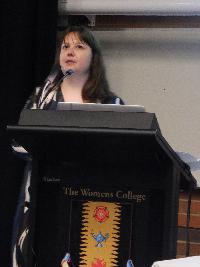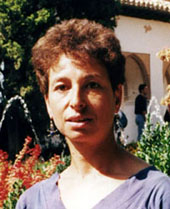Is a bachelor's degree necessary for a translator? Thread poster: Diana Love
|
|---|
I'm wondering if I need a bachelor's degree. I'm perfectly open to translation training and getting certifications of my language proficiency but if I could avoid paying terrific sums of money to get a degree I might not need, I'd love to. If anyone could share their opinions or experiences I would really appreciate it. Thanks!
| | | | Tom in London
United Kingdom
Local time: 13:44
Member (2008)
Italian to English
Diana Love wrote:
I'm wondering if I need a bachelor's degree. I'm perfectly open to translation training and getting certifications of my language proficiency but if I could avoid paying terrific sums of money to get a degree I might not need, I'd love to. If anyone could share their opinions or experiences I would really appreciate it. Thanks!
I have a degree but not in translation.
Having worked for many years as a translator I can say with confidence that experience, and not pieces of paper, is what matters.
However there may be some types of translation work that require the translator to hold a specific qualification.
| | | | DZiW (X)
Ukraine
English to Russian
+ ...
| higher education | Aug 14, 2018 |
Any higher (than what?) education proves that one has allegedly got some major ABC and skills, perhaps, while learning a little when to subdue--Oops!--how to communicate. Namely, it's just a proof that one could* be able to cope with simple tasks and even work with others--to some extend.
Biz skills aside, I find decent specialists with language skills are doing better than topnotch linguists with some specialization (theory), not to mention working with people (as interpreters) is ... See more Any higher (than what?) education proves that one has allegedly got some major ABC and skills, perhaps, while learning a little when to subdue--Oops!--how to communicate. Namely, it's just a proof that one could* be able to cope with simple tasks and even work with others--to some extend.
Biz skills aside, I find decent specialists with language skills are doing better than topnotch linguists with some specialization (theory), not to mention working with people (as interpreters) is more lucrative than working with papers (as translators).
So far, Diana, if you have some business skills, how about coupling your major/minor with a foreign language competence? I'm sure everyone is pretty curious and relatively good at different areas and fields.
[Edited at 2018-08-14 15:20 GMT] ▲ Collapse
| | | | | Many roads in | Aug 14, 2018 |
Translators' qualifications vary immensely. Some have no formal qualifications, while others have a doctoral degree and decades of years of experience in their field(s). If you hope to work with agencies, you will need one or the other, with both being the most likely to open doors. Some translators have a degree in translation, but that is not compulsory by any means. A number have also done a first degree in one discipline and worked in the field and take a translation qualification, not neces... See more Translators' qualifications vary immensely. Some have no formal qualifications, while others have a doctoral degree and decades of years of experience in their field(s). If you hope to work with agencies, you will need one or the other, with both being the most likely to open doors. Some translators have a degree in translation, but that is not compulsory by any means. A number have also done a first degree in one discipline and worked in the field and take a translation qualification, not necessarily a degree.
If you are intending to market your skills to direct clients, they are less likely to require a degree but you will need to find some way of convincing them that you have relevant knowledge and experience, and that you are near native in your source language. ▲ Collapse
| | |
|
|
|
| Go for a qualification YOU feel you need | Aug 14, 2018 |
Translation is not a highly regulated profession, so you do not strictly need a bachelor's degree.
However, most professional translators have some kind of degree, and often several, or they have impressive qualifications in their specialist subjects. Translation will often require specialist knowledge of one kind or another, though not necessarily a BA in linguistics.
Being bilingual is not a qualification in itself. Many bilinguals work with one language at a time, li... See more Translation is not a highly regulated profession, so you do not strictly need a bachelor's degree.
However, most professional translators have some kind of degree, and often several, or they have impressive qualifications in their specialist subjects. Translation will often require specialist knowledge of one kind or another, though not necessarily a BA in linguistics.
Being bilingual is not a qualification in itself. Many bilinguals work with one language at a time, like monolinguals, but alternate from one to the other. Often they do not actually translate between their languages.
Translation is a skill that comes naturally to some people, but it improves enormously with training and practice, and with increasing awareness of difficulties and pitfalls and knowledge of solutions. You can gain experience by observation and self-study, or you can follow an educational programme. Probably a combination is the best way of all.
Probably most important is a knowledge of a specialist subject area and its terminology, and the professional culture, jargon and idioms that go with it. Of course, a translator needs to know both languages.
There are lots of different ways of acquiring the knowledge and experience you need, some more expensive than others. I would recommend having some kind of qualification, so that you 'learn how to learn' - but choose a subject that YOU are interested in and consider relevant.
I find my postgraduate diploma in translation and status as a Chartered Linguist are an advantage - in the USA you should check out the ATA. The diploma provided some useful short cuts and pointers to where to look for support as I gathered experience, and I took it part time, largely over the Internet, with monthly seminars.
As Tom says, it is not the certificate that makes a translator, but what you learn on the way. A relevant bachelor's degree - or a master's or a PhD - may be well worth the investment, but it is up to you to decide what to study and how. ▲ Collapse
| | | | Daniel Frisano 
Italy
Local time: 14:44
Member (2008)
English to Italian
+ ...
It's probably wasted time that you'd better invest in something else.
The best translators I have met have a degree in a field other than translation, are highly competent in that field, have a deep understanding of the source language, and are able to write fluently in the target language. A translation degree gets you none of these skills.
| | | | Sheila Wilson 
Spain
Local time: 13:44
Member (2007)
English
+ ...
| You have to have what it takes, and convince your clients of that | Aug 14, 2018 |
Christine Andersen wrote:
However, most professional translators have some kind of degree, and often several, or they have impressive qualifications in their specialist subjects. Translation will often require specialist knowledge of one kind or another, though not necessarily a BA in linguistics.
Or they could just have the all-important life, work and subject-specific experience that Christine also refers to in her post. Although it's useful to at least learn about some of the basics of translation as a profession. For example, you need to know how to deal with acronyms and proper nouns, and how the translation of a degree diploma may look totally different from a CV that talks about exactly the same degree. It isn't as simple as taking a sentence and translating all the words.
Being bilingual is not a qualification in itself. Many bilinguals work with one language at a time, like monolinguals, but alternate from one to the other. Often they do not actually translate between their languages.
Everyone with a modicum of education can speak their native language(s) adequately, but not all native speakers can write well. Even those going on to a university-level education can find it difficult to structure elegant sentences, and even harder to arrange their thoughts into logical paragraphs. So being brought up bilingual doesn't necessarily mean you'll make a good translator. And just because the writer of the source text is nearly illiterate doesn't have to mean you produce a rubbish translation (well, not in the marketing sector, anyway - maybe in legal texts).
You'll need:
Great source-language comprehension
Great target-language writing skills (this would normally be your native language)
Great research skills
Great IT skills
Great marketing/negotiation/book-keeping skills (remember a freelancer is running a business, albeit a very small one)
Great motivation and self-confidence
Great attention to detail
Great sense of responsibility (let a client down once and you've lost them for life).
Plus, unless you're working in a rare pair:
Great knowledge of one or more subject areas, to form your specialisations - anything from catering to chemistry, football to pharmaceuticals, sewing to psychology. Having a specialisation will avoid you being a "generalist" for life. It's fine to start out that way but that's where the low rates are. To really succeed in a common pair you need to find some sort of niche to excel in.
If you're young, inexperienced, and untrained, you'll have precious little to offer clients. You can't do anything much about your age  (and shouldn't try!), and experience takes time to accumulate, but you can get yourself some certificates to show that you know a bit about the job. It could make all the difference in the early days as you don't want the early experience to be bad experience. In the current networked era, a poor reputation can be difficult to overcome. (and shouldn't try!), and experience takes time to accumulate, but you can get yourself some certificates to show that you know a bit about the job. It could make all the difference in the early days as you don't want the early experience to be bad experience. In the current networked era, a poor reputation can be difficult to overcome.
| | | | Tom in London
United Kingdom
Local time: 13:44
Member (2008)
Italian to English
| Read, read, read | Aug 14, 2018 |
Sheila Wilson wrote:
Everyone with a modicum of education can speak their native language(s) adequately, but not all native speakers can write well. Even those going on to a university-level education can find it difficult to structure elegant sentences, and even harder to arrange their thoughts into logical paragraphs.
I agree. It isn't often mentioned but a good translator should read, read, read, in their native language, all the time. They should be reading all types of writing, from technical text to fiction, constantly refining their understanding of the language; because essentially, translating means writing.
| | |
|
|
|
| BA perhaps no, MA yes! | Aug 14, 2018 |
Of course, anyone can become a translator and earn peanuts working for bottom-feeder agencies, which don't always pay up, if the forums on this site are to be believed but is this what you want your career to be all about?
Having long taught on MA courses for translators, I can assure you that our students have it far easier when it comes to getting work. They have the training instilled in them by lecturers, themselves professionals, the experience of the internships they are expec... See more Of course, anyone can become a translator and earn peanuts working for bottom-feeder agencies, which don't always pay up, if the forums on this site are to be believed but is this what you want your career to be all about?
Having long taught on MA courses for translators, I can assure you that our students have it far easier when it comes to getting work. They have the training instilled in them by lecturers, themselves professionals, the experience of the internships they are expected to complete, the support of networks they have developed during their studies, the backing of the alumni associations and, often, if they are good enough, access to salaried employment in international organisations.
In later years, when they have earned their stripes and wish to go freelance, they will have a pool of potential clients on tap, a reputation enabling them to command high rates and the possibility of avoiding working with agencies at all. Nobody to cream off part of the takings !
If they have good writing skills and a gift for communication, they can also extend their portfolio to other services related to translation (proof-reading, creating copy, even teaching the next generations...).
Having travelled this route and knowing how much I can and do charge my direct clients, why on earth recommend to a beginner to go in through the backdoor and struggle for a few cents a word?
Makes sense, doesn't it? ▲ Collapse
| | | | Samuel Murray 
Netherlands
Local time: 14:44
Member (2006)
English to Afrikaans
+ ...
Diana Love wrote:
I'm wondering if I need a bachelor's degree.
Training has two purposes, namely to learn something and to impress clients/colleagues. However, the impression value is fairly low, so don't spend too much money on it if that is your main goal. Besides, if you want to impress clients with your qualifications, a longer list of smaller, targeted qualifications will impress more people than a single "BA" or "BS" with some date next to it.
I understand that a 4-year bachelor degree in the United States will set you back around USD 100 000 (including living expenses). For that amount of money, I would recommend you decide what it is that you want to learn, and learn it separately.
| | | | Vanda Nissen 
Australia
Local time: 22:44
Member (2008)
English to Russian
+ ...
| Why not to kill two birds with one stone? | Aug 14, 2018 |
Unfortunately, your profile is empty so it is impossible to see your source languages but education in EU is much cheaper even for non-EU residents, especially in countries like Italy, Germany. If you work with European languages, it might be a good idea to get a degree in EU. If I were you, I would certainly look into this option.
| | | | Joakim Braun 
Sweden
Local time: 14:44
German to Swedish
+ ...
If I hired translators, I'd actually prefer people with degrees and work backgrounds outside of translation.
Say, an engineer doing technical translations, or a nurse doing medical translations.
| | |
|
|
|
B D Finch 
France
Local time: 14:44
French to English
+ ...
| There are other routes | Aug 16, 2018 |
Tom in London wrote:
Having worked for many years as a translator I can say with confidence that experience, and not pieces of paper, is what matters.
However there may be some types of translation work that require the translator to hold a specific qualification.
I'm afraid I can't agree with that. There are many translators for whom it holds true, but there are many others who simply don't have an adequate knowledge of either their source or target language and for whom experience simply entrenches bad practice and their delusions about their own competence.
A translator needs to have both a deep understanding of their source language and the ability to write well in their target language. Some people are able to acquire these skills without having any university-level qualifications to show how they did it. They might have acquired a good grounding in grammar and writing in their target language in primary and secondary education, have a naturally good eye and ear for language and read a lot in both/all their languages. They might have lived and worked in both their source language and target language countries and have acquired specialised technical and linguistic knowledge through their work. There's still the problem of how they convince potential clients of their skills.
It's useful to have a degree, not necessarily in translation, because of the intellectual discipline involved in studying for a degree. It can give you a useful background in a field in which you can then specialise as a translator. It's still advisable to get a qualification in translation, because of what you learn while studying for that qualification, and as a way of demonstrating your competence to potential clients, but this needn't be in the form of a bachelor's degree; it could be a postgrad qualification.
[Edited at 2018-08-16 10:55 GMT]
[Edited at 2018-08-16 11:04 GMT]
| | | | DarwinE 
United States
Local time: 07:44
Spanish to English
+ ...
| I think it has helped me. | Aug 17, 2018 |
I was two semesters away from graduating with a BA in Spanish when they introduced a new concentration in Spanish Translation and Interpreting. This required me to stay an additional semester, but seeing as how I didn't have plans to become a teacher like most of my classmates around me I decided to enroll and ended up being among the first to graduate in this new concentration at my university.
Although it hasn't been explicitly expressed I feel like my BA, in lieu of the 7+ years... See more I was two semesters away from graduating with a BA in Spanish when they introduced a new concentration in Spanish Translation and Interpreting. This required me to stay an additional semester, but seeing as how I didn't have plans to become a teacher like most of my classmates around me I decided to enroll and ended up being among the first to graduate in this new concentration at my university.
Although it hasn't been explicitly expressed I feel like my BA, in lieu of the 7+ years of experience some agencies like to ask for, has helped me earn a few clients. At the same time I don't think it's the only or principal contributing factor. I also have years of volunteer experience using my linguist skills. My BA did help me earn a job as medical interpreter at a hospital. I think whenever clients select me for translations in the medical domain, they hold my experience as a medical interpreter a little higher than they do my BA in Spanish Translation and Interpreting (which helped me earn the job and the first place and included individual courses on translation and interpretation specifically in the medical domain).
I'm happy with the degree I have and where it landed me, but I would also agree with some others on here who say you should pursue a degree specializing in a unique domain. At the same time, if your school offers some sort of course on translation theory you should add that to your degree plan as well. It will make you realize that translation is more than just being bilingual. Its not a natural skill, but it can be taught. ▲ Collapse
| | | | | Believe in your skills ! | Aug 18, 2018 |
As said earlier, I don't think having a particular diploma or certification is really necessary in order to become a translator. It's an additional benefit, but it's far from determining the outcome of an application for an agency or to crumble the confidence a customer has in you. I think experience is the most important factor. If you're getting started it will probably be harder to find clients but after a while and some experience, it should gradually become easier. Personally, I started my ... See more As said earlier, I don't think having a particular diploma or certification is really necessary in order to become a translator. It's an additional benefit, but it's far from determining the outcome of an application for an agency or to crumble the confidence a customer has in you. I think experience is the most important factor. If you're getting started it will probably be harder to find clients but after a while and some experience, it should gradually become easier. Personally, I started my translation career by underpricing to get my first clients. A lot of people here on ProZ do not have a diploma related to translation, and they are still making a living out of it. I am myself new on this platform, but I've talked with translators working on this platform, and most of them didn't graduate from a field related to translation in particular.
[Edited at 2018-08-18 01:21 GMT] ▲ Collapse
| | | | To report site rules violations or get help, contact a site moderator: You can also contact site staff by submitting a support request » Is a bachelor's degree necessary for a translator? | CafeTran Espresso | You've never met a CAT tool this clever!
Translate faster & easier, using a sophisticated CAT tool built by a translator / developer.
Accept jobs from clients who use Trados, MemoQ, Wordfast & major CAT tools.
Download and start using CafeTran Espresso -- for free
Buy now! » |
| | Anycount & Translation Office 3000 | Translation Office 3000
Translation Office 3000 is an advanced accounting tool for freelance translators and small agencies. TO3000 easily and seamlessly integrates with the business life of professional freelance translators.
More info » |
|
| | | | X Sign in to your ProZ.com account... | | | | | |

































